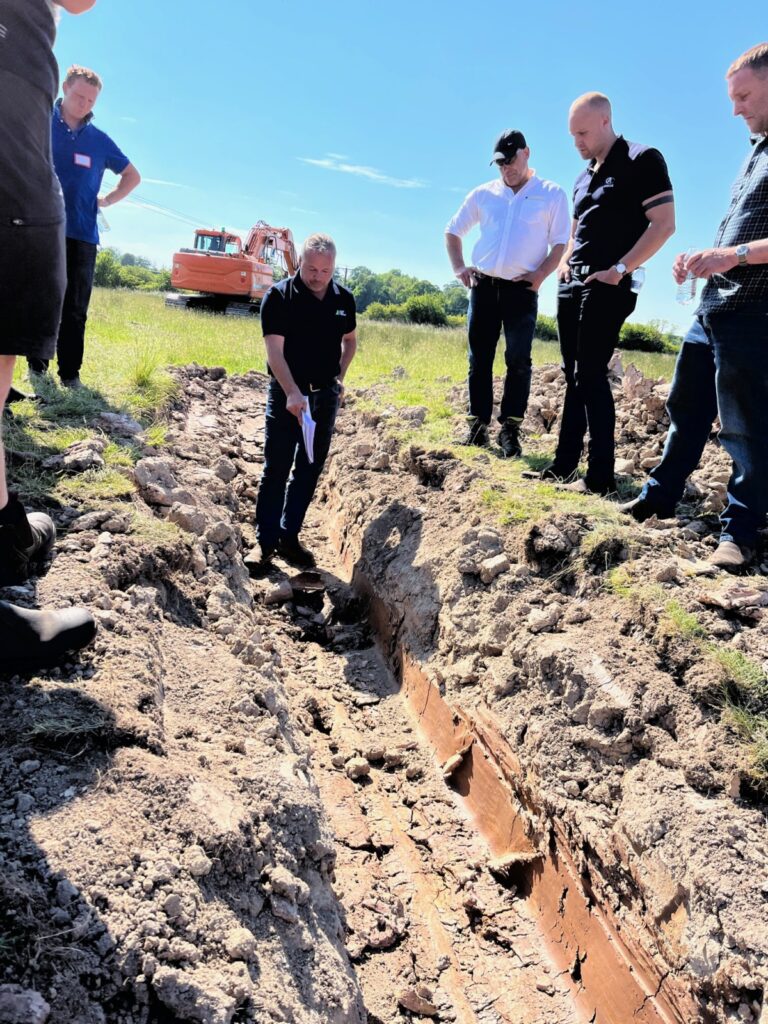ONE OF onine Monitor Farms across Scotland has discussed soil pH, field drainage and implementing a new grass and grazing plan at their summer meeting.
The Stirlingshire Monitor Farm is part of a programme – funded by the Scottish government – that aims to help farms reach full economic, social, and environmental sustainability by optimising production.
The Duncan family runs the Stirlingshire Monitor Farm, which includes the farms and the diversified agritourism enterprises, such as glamping pods and selling home-grown lamb, hogget and mutton.
During the meeting, precision agronomy manager Catriona McLean highlighted the importance of soil pH, explaining that an active liming programme could improve it to 5.8 on permanent pasture and 6.2 on temporary grass and re-seeds.

However, the use of lime has been constrained by access issues, as the farm sits on a very narrow back road which is a struggle for bulk artic lorries – the only delivery method for lime.
Graham Lofthouse, grazing specialist, advises making a 10-year grassland plan for the farm, looking at pH in particular: “Low pH is the principal factor in grassland performance locking up macro and micronutrients.”
He also talks about sward management: “The sward stick is a valuable tool; use it and focus on keeping the grass as vegetative as possible – the leaf is the powerhouse.”
Jamie Dick, drainage specialist, emphasises the importance of fixing small drainage issues in the farm’s heavy clay fields: “Get those small maintenance things done and make sure outlets are okay then after that, management of the soils you have, field by field, is key.”
Visitors also discussed stock health and nutrition, and what the host farmers had been doing since their first meeting six months ago.
The Duncans explained their specialist plans on nutrient management and reseeding, sheep nutrition, a new strategy to tackle lameness in sheep, and received input on disease management in calves and on cow nutrition.
Part of the meeting included the presentation of Aerworx Aerator; a tool with blades that penetrate and shatter the hard pan in soils without the risk of soil erosion, helping to improve rooting and nutrient uptake.
Over the next four years, other farmers and experts will be brought together to help the Duncans assess farm performance, explore opportunities, and develop solutions to the challenges they face.